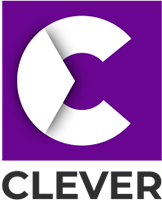Workshop on scenario-based learning with low-fidelity simulations
Wednesday, 12:30–14:00

TELSON group {Masaryk University, St George’s University in London, The University of Medicine and Pharmacy “Grigore T. Popa” Iasi}
Support: TELSON, Erasmus+ (Problem-based and team-based learning strategies in the education of biomedical and life sciences)
The workshop will deliver general information about how Scenario-Based-Learning (SBL) educational resources - virtual scenarios (VS) - and pedagogy methods - PBL and TBL - can be used effectively in order to develop reasoning skills and decision making competencies in students. This will be explained on the experience and data coming from the Summer school on Mathematical Biology organized by Masaryk University in autumn 2019. The participants will hear about selected collaborative learning methods (PBL, TBL & Flipping classroom) and the main differences between them. Further they will have an opportunity to work in groups on development of single-based-answer items, which form an import part of readiness tests in TBL.
Interactive session on case-based learning in medicine
Wednesday, 16:00–17:30

CLEVER group {The University of Medicine and Pharmacy “Grigore T. Popa” Iasi, Pavol Jozef Šafárik University in Košice, Masaryk University}
Support: CLEVER, Erasmus+ (Case-based learning and virtual cases to foster critical thinking skills of students)
The workshop will introduce Case-Based-Learning (CBL) and Virtual Patient Cases (VPC) in a context of medical curriculum at University of Medicine and Pharmacy “Grigore T. Popa” in Iasi. The participants of the workshop will hear about SWOT analysis focused on implementation of CBL and VPC into an existing curriculum – using learning units and learning outcomes – two important entities employed in the formal description of a curriculum. Demonstrated examples of virtual patient cases and explained insights into the authoring methodology will serve the participants as a toolkit for their ‘hands-on-VPC’ activity.
Symposium on curriculum innovations
Thursday, 13:00–14:30

BCIME group {Pavol Jozef Šafárik University in Košice, Masaryk University, Universitaet Augsburg, Uniwersytet Jagiellonski, The University of Medicine and Pharmacy “Grigore T. Popa” Iasi}
Support: BCIME, Erasmus+ (Building Curriculum Infrastructure in Medical Education)
The workshop will offer overview of innovative curriculum mapping and harmonization processes and considerations of how curriculum innovations can enhance the comprehensibility of medical curriculum and streamline efficiency during its definition. Participants will acquire information about the needs analysis of five independent medical faculties regarding the curriculum management systems. Guidelines and the best practices including methodological background how to address the challenge of curriculum innovations based upon the experiences of the contributing organizations will be presented too. Inspired by the results of BCIME implementation team, teachers, curriculum designers, institutional management, and anyone, who might be involved in learning innovation can find motivation for curriculum optimisation.
Workshop on virtual patients in continuous professional development
Thursday, 15:00–16:30

Daniel Schwarz, Kateřina Maršálová, Matúš Hlaváčik {Institute of Biostatistics and Analyses, Ltd.} & Igor Richter {Liberec Hospital}
Support: Ipsen Pharma
Lifelong learning of physicians in the Czech Republic is organized by professional medical associations, often with some external support. Despite the delayed onset of technology-enhanced learning, there have been several e-learning projects and online platforms for case-based learning launched recently. “Renal carcinoma and virtual patients” (ca-ledviny.cz) is a new project aimed at scenario-based learning with all cases associated with this type of kidney cancer. Although the target group involves mainly oncologists and urologists, this educational platform has the potential to become an interesting learning resource for specialists in other medical disciplines as well. The workshop participants will receive information about the project and will hear about the authoring process behind linear and interactive virtual patients. One of the on-line cases will be gone through while being facilitated by an invited content expert. A standardized evaluation tool will be then used to gather data from participants about their experience.